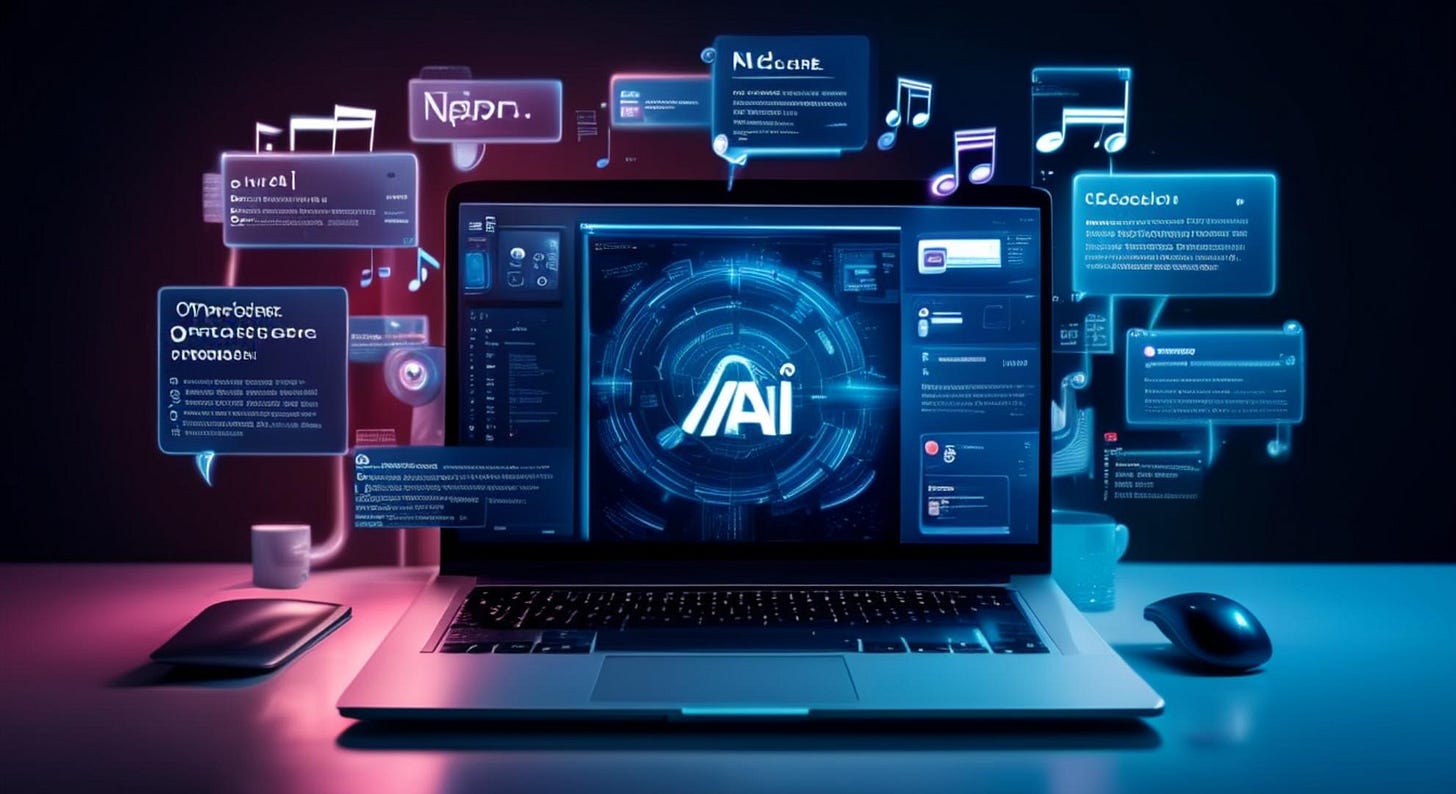The Best Open-Source AI Tools You Need to Know About in 2025
AI is reshaping the future—let’s build it together, one open-source tool at a time.
Artificial Intelligence (AI) is no longer a futuristic concept—it’s here, and it’s transforming the way we work, create, and innovate. For those who value transparency, customization, and community-driven development, open-source AI tools are a game-changer. In this article, we’ll dive into some of the best open-source AI tools available today, their unique features, and how they can empower your projects.
1. Napkin: Turn Your Ideas into Beautiful Messages
Napkin is one of the most impressive open-source AI tools for content creation. It takes your raw ideas and transforms them into polished, professional messages. Whether you’re working on web copy, video scripts, books, or interview prep, Napkin’s intuitive interface and powerful algorithms make it a must-have tool.
What sets Napkin apart is its versatility. It’s designed to cater to a wide range of industries, making it a valuable asset for marketers, writers, and creators alike. During its beta phase, Napkin is completely open-source, allowing users to explore its capabilities without restrictions.
👉 Explore Napkin: [Napkin Official Website](https://www.napkin.one)
2. DeepSeek Version 3: The Rising Star of Large Language Models
DeepSeek Version 3 is a cutting-edge large language model (LLM) that has been making waves in the AI community. In benchmark comparisons, it outperforms many other LLMs, showcasing its advanced natural language processing capabilities.
One of the standout features of DeepSeek is its internet-enabled functionality, which allows users to access real-time information and generate contextually relevant responses. It’s open for use and offers exceptional processing power, making it a top choice for developers and researchers.
👉 Learn More About DeepSeek: [DeepSeek GitHub Repository](https://github.com/deepseek-ai/deepseek-v3)
3. Notebook LM: Google’s Document Whisperer
Notebook LM, developed by Google, is a revolutionary tool that allows you to upload documents and interact with them as if they were conversational partners. You can ask questions, extract insights, or even turn your documents into summaries with a single click.
The tool’s ability to pause and answer follow-up questions makes it incredibly user-friendly. Whether you’re a student, researcher, or professional, Notebook LM can help you make sense of complex information quickly and efficiently.
👉 Check Out Notebook LM: [Notebook LM by Google](https://notebooklm.google.com)
4. Suno AI: The Future of AI-Generated Music
Suno AI is, in my opinion, the best open-source tool for AI-generated music. It offers a wide range of features for musicians, producers, and creators, allowing them to experiment with AI-driven compositions.
The platform provides free tiers for users to explore its capabilities, but its premium features are well worth the investment for serious creators. Suno AI is a testament to how AI can democratize music production and inspire creativity.
👉 Discover Suno AI: [Suno AI Official Website](https://www.suno.ai)
5. Pinocchio: Your Gateway to Open-Source AI Models
Pinocchio is an open-source platform that simplifies the process of launching and managing AI models. It supports a variety of open-source AI tools, including Face Fusion, Comfy UI, and Instant ID, making it a one-stop shop for AI enthusiasts.
The platform is constantly updated with new models and features, ensuring that users have access to the latest advancements in AI technology. If you’re looking to experiment with cutting-edge AI tools, Pinocchio is an excellent starting point.
👉 Explore Pinocchio: [Pinocchio GitHub Repository](https://github.com/pinocchio-ai/pinocchio)
Why Open-Source AI Tools Matter
Open-source AI tools are more than just free alternatives to proprietary software—they represent a movement toward transparency, collaboration, and innovation. By leveraging these tools, you can customize solutions to fit your unique needs, contribute to their development, and be part of a global community pushing the boundaries of what AI can achieve.
Your Turn: Share Your Favorites
Have I missed any incredible open-source AI tools? Let me know in the comments! What’s your favorite open-source AI resource, and how has it helped you? Don’t forget to like, share, and follow for more insights into the world of AI and technology.


